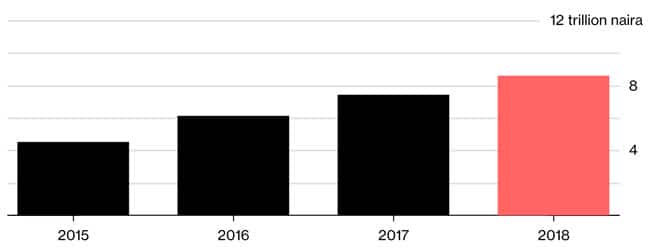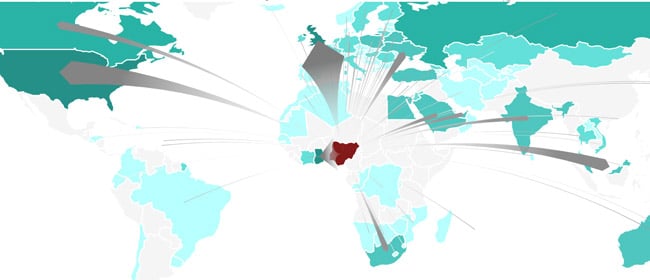Strengthening Nigerian economy bolsters outlook for study abroad
The Nigerian economy stalled when world oil prices fell off in 2015. The currency – the naira – dropped in value and foreign exchange controls were subsequently introduced through 2016 and 2017. Economic output, which had been so strong in the years prior, entered an extended recessionary period of negative growth, and public spending came under considerable pressure as a result.
In a relatively short period of time, the shift in currency values made the effective cost of studying abroad considerably higher, even as governments struggled to maintain the scholarship funds on which so many Nigerian students had come to depend to support their studies abroad.
This all had the effect of stalling growth in outbound mobility as well. The number of Nigerian students increased by roughly 50% between 2012 and 2015 alone. But UNESCO estimates that the number of Nigerians abroad flattened out at that point to hover around 75,000 per year in 2015 and 2016.
There are signs, however, that the country is poised to resume its pattern of growth this year.
First, Nigeria shook off its recession in 2017 and recorded positive GDP growth over the last three quarters of the year. Overall growth for 2017 was marginal, but the International Monetary Fund projects that Nigeria will grow by a little more than 2% in 2018 and then a bit more than that in 2019. The current recovery, as with the recession that preceded it, is a function of commodity prices, and the growth forecast through 2019 is predicated on rising oil prices and strong agricultural output.
The government, meanwhile, is ramping up spending and the national budget has almost doubled since 2015.

The impact on study abroad
Through all the economic turbulence of the last two years, the fundamentals of the Nigerian market are still enough to fuel an optimistic outlook going forward.
The country has a huge (and growing) college-aged population. As the British Council noted recently, “Nigeria is a N-11 country – one of 11 large-population countries identified as having the right economic and political conditions to influence the global economy in the 21st century.”
Roughly 1.5 million students a year seek a place at one of Nigeria’s public universities with only about half a million gaining admission. The remaining majority without a seat try for admission in subsequent years, pursue their studies at a more expensive private university, or go abroad to earn their degrees.
And demand for tertiary education continues to grow and to pressure the capacity of the country’s universities. Total tertiary enrolment in Nigeria increased from 1.63 million in 2010 to nearly two million as of 2016, and is forecast to more than double to roughly five million by 2024.
All of these factors have led the British Council to project that Nigeria will be one of the fastest-growing markets for study abroad through 2024, and particularly with respect to post-graduate studies.
















